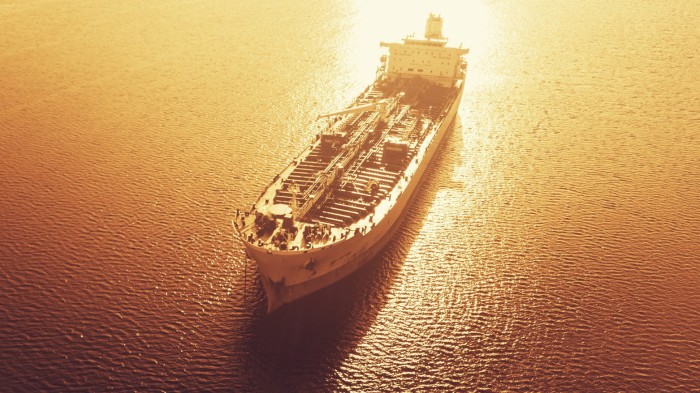Unlock the Editor’s Digest for free
Roula Khalaf, Editor of the FT, selects her favourite stories in this weekly newsletter.
The UK authorities are challenging an average of more than 40 suspected members of the Russian “shadow fleet” every month as they pass the British coast, UK government figures show.
UK maritime authorities have challenged 343 vessels about their insurance status between October and June, as part of intensifying European efforts to put pressure on Russia’s oil exports.
It is the first time that official UK figures have been released, and give an early insight into how insurance compliance is being used to crack down on shadow fleet vessels.
The UK government said the challenges — issued by radio to suspect ships — were effective against use of the rogue vessels, mostly oil tankers, that could be being used to circumvent sanctions against Russia.
In one instance, the crude oil tanker Ksena ignored a UK demand to give its insurance details on November 12. It was put on the UK’s sanctions list later that month.
“Any vessel that facilitates and supports Russia’s malign activities could be exposing themselves to sanctions,” the UK government said. Adding vessels to the sanctions list directly makes it difficult for the vessel to be used in business transactions with other companies.
Sanctions officials have found that sanctioning individual ships rather than their corporate owners has proved effective at undermining their usefulness to Russia’s oil exporting business.
Russia’s use of the so-called shadow fleet has allowed it to continue exporting oil to India, China and other countries without needing to comply with western restrictions imposed on the country in the aftermath of its full-scale invasion of Ukraine in 2022.
The shadow fleet are vessels that avoid using western insurance or other services and make their ownership difficult to ascertain. As a result, it is difficult for western government to enforce sanctions, if the vessels are found breaching sanctions.
Western insurers are barred from providing insurance to tankers carrying Russian oil bought for more than a fixed cap, which is set at $60 a barrel for crude.
As a result, shadow fleet vessels — some of which are directly controlled by Russian entities — often have either inadequate insurance or none at all to cover any environmental or other accidental damage, in breach of international maritime rules.
“The UK is continuing to take steps to combat malign, Russian-backed maritime activity near the UK including challenging suspected shadow fleet vessels as they pass through the English Channel,” the government said.
“While ships have the right to innocent passage through UK territorial waters, we have already challenged 343 suspected shadow fleet vessels in the Channel for proof of adequate insurance and will continue to do so for any vessels we suspect.”
Concern about the safety implications of the proliferation of underinsured oil tankers has been growing over the past year. In December, the UK, Denmark, Sweden, Poland, Finland and Estonia all agreed to step up their checks on insurance.
Last week, Germany said it was increasing checks on insurance on vessels using the Fehmarn Strait near the entrance of the Baltic Sea. Sweden has also said it will do more checking.
The Kyiv School of Economics has estimated that a daily average of 692,000 barrels of crude oil and 245,000 barrels of refined products were shipped from Russia’s Baltic ports in April on ships without recognised western insurance.
However, one maritime expert said it was unlikely that the UK’s challenges were having much impact on the ships themselves.
The expert, who asked to remain anonymous, said the UK had started asking ships about their insurance when they announced their plans to sail through the English Channel.
“What follows appears to be fobbing off with false information or just ignoring those questions,” he added.




